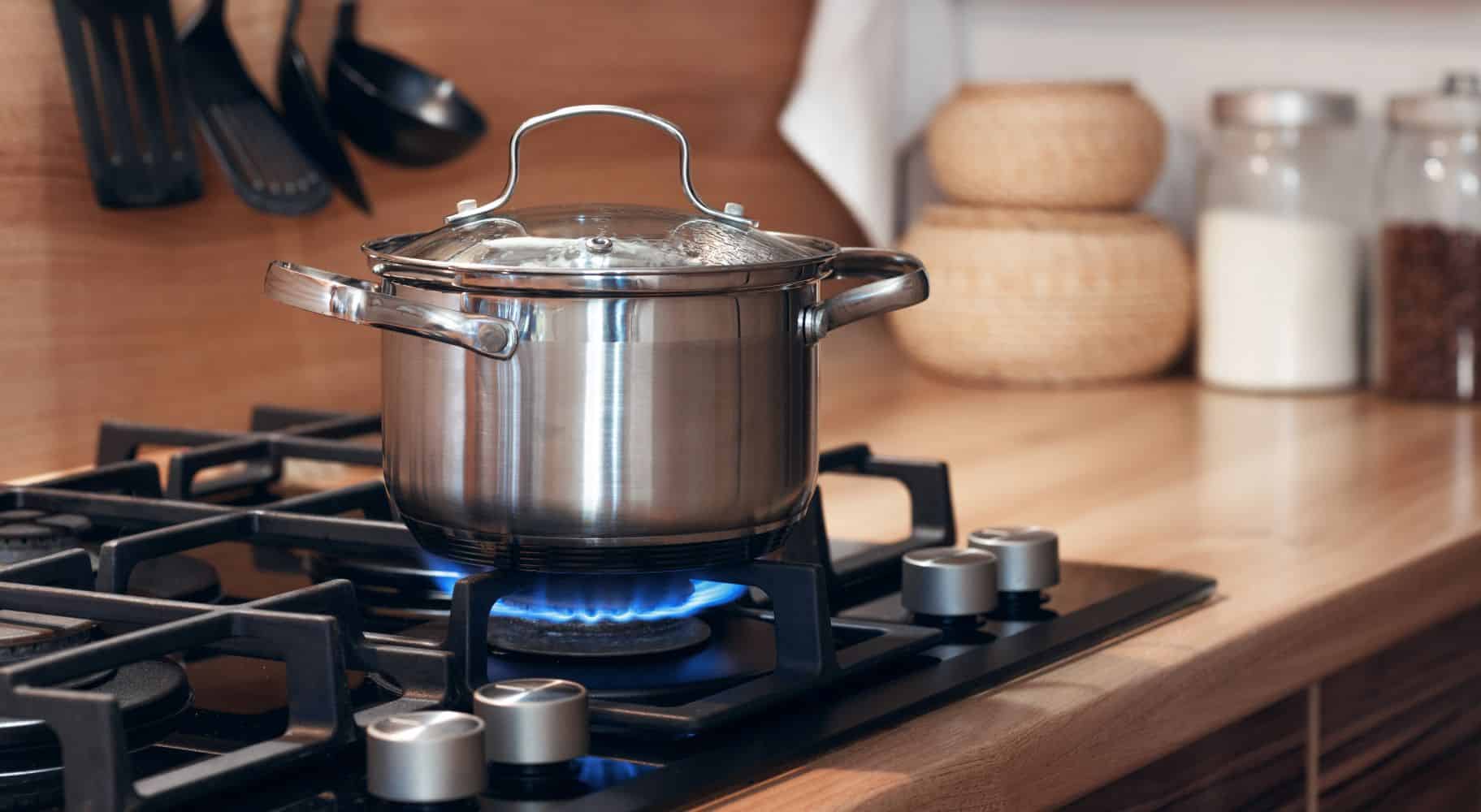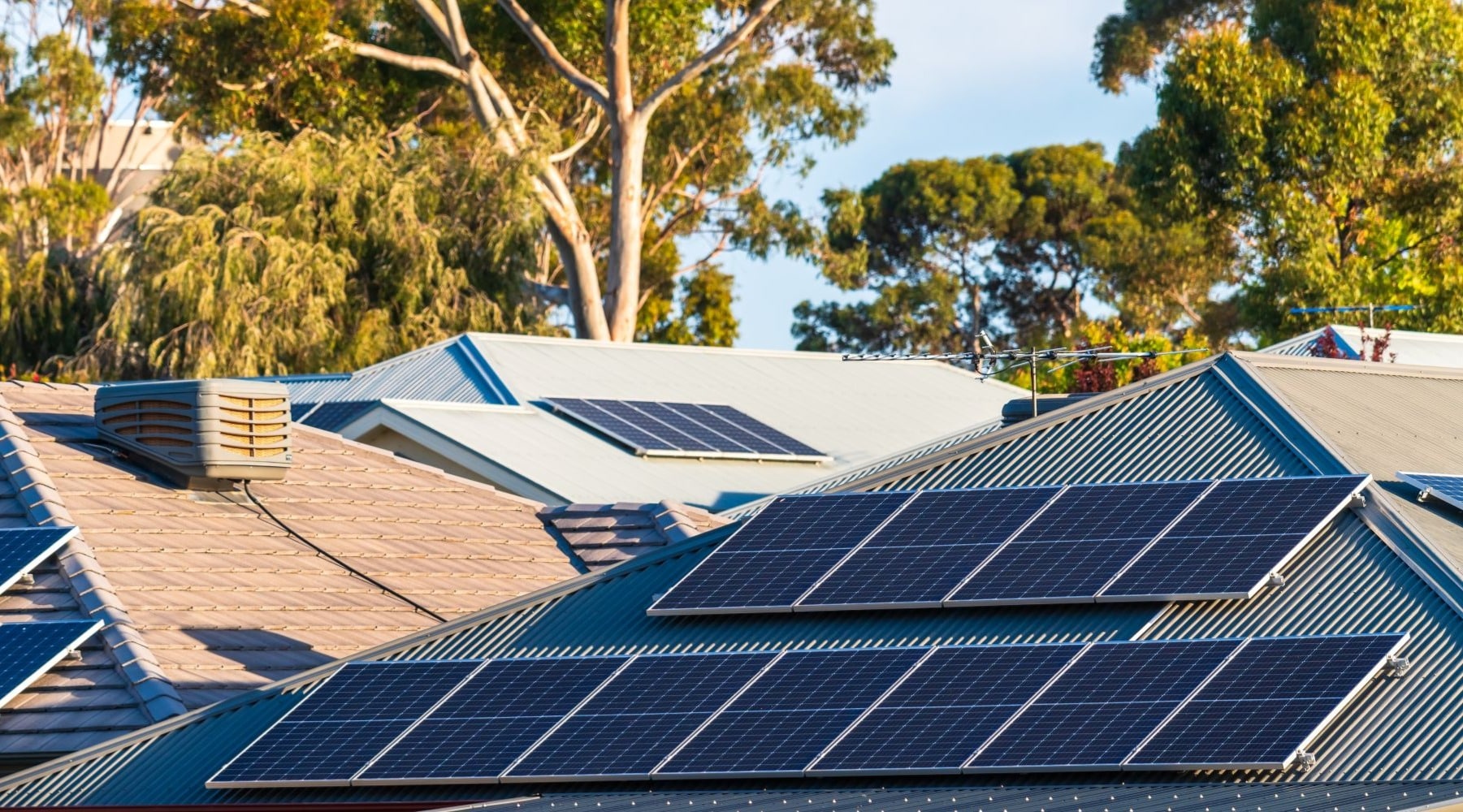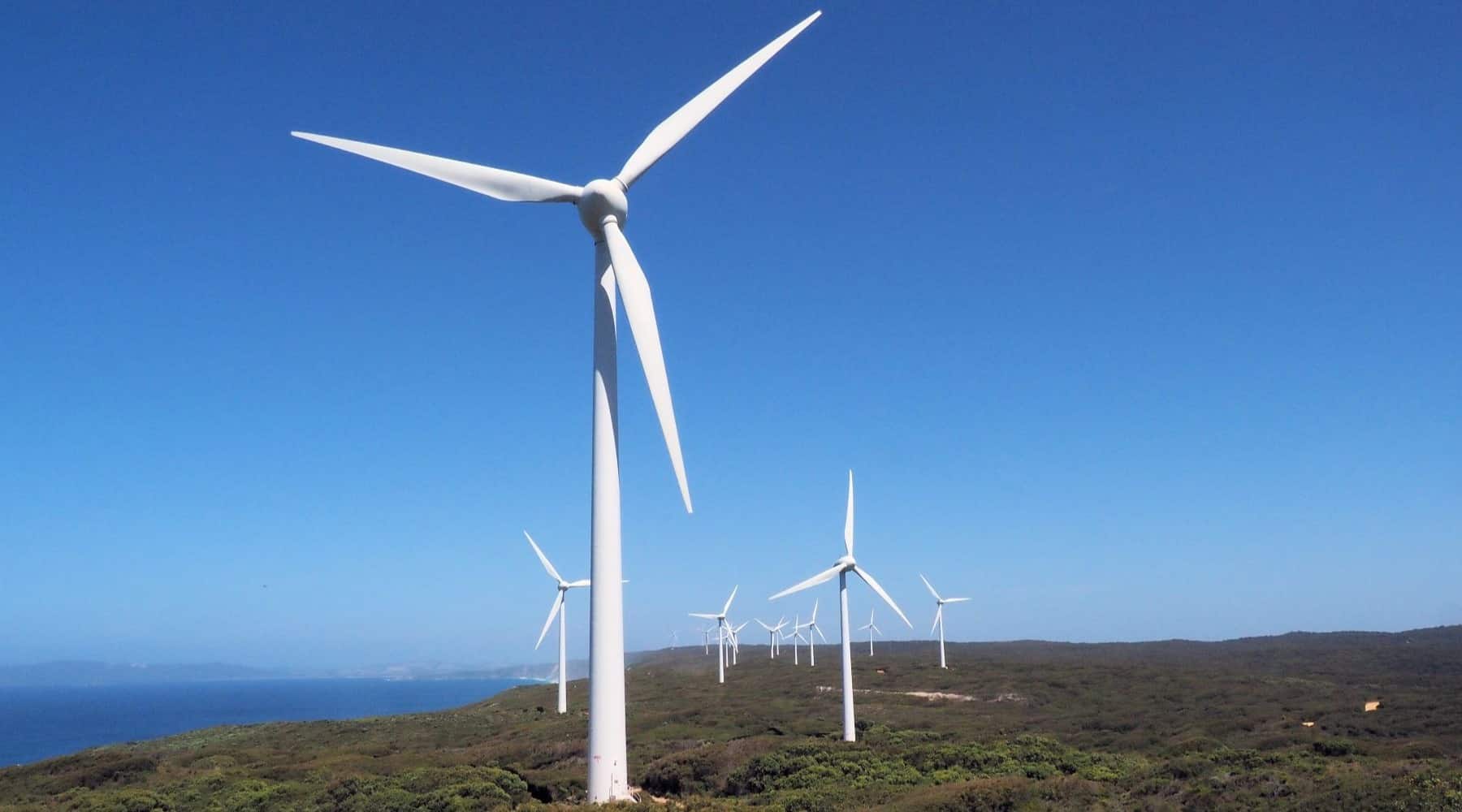Energy bills can get expensive, and if yours seems too high it might be time for a change. Savvy makes it easy to compare a range of gas, electricity and solar plans in one place. With offers from leading providers and a simple online process, we make switching to a better energy deal quick and hassle-free.
Why compare energy plans through Savvy?
100% free to use
You won't need to pay a cent to compare a variety of energy plans online through Savvy. It's 100% free.
Simple online quotes
By filling out your form and providing a recent energy bill, you can have all the facts and figures worked out for you.
Choice of leading providers
When you fill out your quote, you'll be able to consider offers from some of the leading energy providers in Australia.
How do energy prices work in Australia?
Electricity and gas prices vary across Australia, with each state or territory setting its own rules for regulation and competition.
Depending on where you live, the market may be regulated or deregulated:
- Regulated: the state or territory government controls energy prices or limits competition to government-owned providers. This helps keep prices stable but reduces or removes consumer choice. In other words, you likely won’t be able to choose your energy provider – and if you can, the prices are typically the same across the board due to government regulation.
- Deregulated: the state or territory government allows private energy providers to set their own rates, creating more competition. This means you can compare plans and switch providers to get a better deal.
So, where can you take advantage of competitive energy pricing? Here's a breakdown by state and territory:
| State/territory | Electricity | Gas |
|---|---|---|
| ACT | ✓ | ✓ |
| NSW | ✓ | ✓ |
| NT | ✗
Electricity is regulated by the NT Government. |
✗
Most homes in the NT are not connected to mains gas. |
| QLD | ✓
South East Queensland – if you are in the deregulated zone, you can choose from a range of providers. ✗Regional QLD – electricity is regulated by the Queensland Competition Authority (QCA) and customers cannot choose their provider. |
✓
Residents in properties connected to the gas pipeline can choose their gas provider. |
| SA | ✓ | ✓ |
| TAS | ✓
Tasmania residents may have a choice of energy retailer depending on where in the state they live, though the market is limited. |
✓
Choice is limited to two providers, and gas connections are not available at all properties. |
| VIC | ✓ | ✓ |
| WA | ✗
Most households in WA are unable to choose their provider unless they are a ‘contestable customer’, meaning they either live outside the South West Interconnected System (SWIS) or use more than 50 MWh of electricity a year. |
✓ |
Information correct as of May 2025.
What types of energy plans are available?
While customers in regulated areas have little to no choice in their energy plan, those in deregulated markets can choose from two main types:
Standard contract: also known as a ‘standing offer', this is a plan your retailer puts you on by default, which may not be best deal available.
vs
Market contract: this is a plan chosen by you or negotiated with your retailer, which usually offers lower prices and discounts.
In New South Wales, South Australia and deregulated areas in South East Queensland, standing offer prices are capped by the Default Market Offer (DMO). This is the maximum price that a retailer can charge a standing offer customer, and is also used as a reference price when comparing energy prices in these regions. The prices are reviewed and set annually by the Australian Energy Regulator (AER), taking effect on 1 July each year.
In Victoria, the Victorian Default Offer (VDO) serves a similar role as a government-set benchmark.
If you're in a deregulated area, comparing your options could help you find a better deal on electricity or gas. With Savvy, you can compare plans in NSW, ACT, SA, VIC, parts of QLD and TAS, as well as gas plans in WA, making it easier to find an option that suits your needs.
What affects the cost of my energy bill?
Beyond state regulations and provider competition, your individual energy costs depend on several factors. These include:
Usage and supply charges
Your energy bill includes two main types of charges: one for how much energy you use, and another for the cost of supplying it to your home. Here's how they work:
- Usage charge: this is the amount you pay per kilowatt-hour (kWh) of electricity or megajoule (MJ) of natural gas. The more you use, the higher your bill.
- Supply charge: this is a fixed daily fee for maintaining your connection to the electricity or gas network. While the charge varies between retailers, it applies regardless of how much energy you use.
Type of tariff
Your tariff determines how you're charged for electricity use. There are several types of tariff you may encounter when shopping around for your electricity plan. These include:
- Single rate/flat rate tariff: the cost per kWh is the same regardless of when you’re using electricity.
- Time of use tariff: the cost per kWh varies depending on the time of day, with off-peak hours costing less than peak hours.
- Controlled load tariff: designed to monitor usage from high-usage appliances, such as a hot water system, in addition to one of the above tariffs.
- Block tariff: the cost of electricity changes after a ‘block' of usage.
- Demand tariff: An extra charge based on your highest energy usage during peak demand times (usually late afternoon and evening).
Note: Gas plans typically only use a single rate tariff, though some have seasonal pricing, meaning rates may increase in winter.
Where you live
Your location plays a major role in determining your energy costs, not just due to state-based regulations but also because of your home’s specific characteristics. Factors that can influence your energy usage include:
- Climate: homes in colder climates, such as Tasmania, often have higher heating costs in winter, while those in hotter regions like northern Queensland may see higher air conditioning use in summer.
- Property size: larger homes typically require more energy for heating, cooling and lighting than smaller properties.
- Insulation and energy efficiency: well-insulated homes with efficient appliances and solar panels can significantly reduce energy costs. Older or poorly insulated homes may require more heating and cooling to maintain comfort.
- Urban vs rural areas: in some regional and remote areas, energy supply costs can be higher due to the infrastructure required to deliver electricity or gas.
Discounts
Energy retailers may offer various discounts to help lower your overall bill. These can include:
- Sign-up bonuses: some providers offer one-time credits or discounts when you join a new plan.
- Bundling: combining electricity and gas with the same provider can sometimes unlock lower rates or additional discounts.
- Pay-on-time discounts: some plans reward customers with a discount if they pay their bill by the due date.
- Direct debit discounts: setting up automatic payments can result in a small discount on your energy bill.
- Paperless billing: some providers offer a discount for receiving bills via email, while others may charge a fee for paper bills.
Not all discounts apply automatically, so it’s worth checking with your provider to see what’s available.
Solar power and feed-in tariffs
If you have solar panels, any electricity you generate can be used in your home for free. When your system produces more than you need, the excess energy is fed back into the grid. In return, your energy provider may offer a solar feed-in tariff – a credit applied to your electricity bill.
The value of a feed-in tariff depends on:
- Your location: each state and territory has different regulations affecting rates.
- Your energy retailer: different providers offer varying feed-in rates, ranging from less than 1 cent per kWh to around 12c/kWh in 2025. You can see the feed-in tariff rate when comparing energy plans, and it will also be shown on your electricity bill.
- Your electricity plan: feed-in tariffs are not standalone plans but part of your overall electricity plan. While your excess solar energy is fed back into the grid, there will be times when you need to draw power from it. A higher feed-in tariff doesn’t always mean a better deal as some plans may have higher electricity usage rates, so it’s important to compare both.
Note that many retailers offer dedicated solar plans, which typically provide a higher feed-in tariff compared to standard plans, up to a limit (often between 8kWh and 12kWh each day). These plans can give you more value if you’re producing excess solar power that can be fed back into the grid.
Understanding your energy bill
Before comparing energy plans, it’s important to understand how your bill is structured and what the key details mean.
Under the Better Bills Guideline, introduced in 2023, energy providers must present bills in clear, plain language. They are also required to display essential information more prominently, including a “better offer” statement on the first page if a cheaper plan is available.
Your bill will show:
- How your charges are calculated: a breakdown of supply charges, usage charges and any applicable tariffs.
- How much energy you’ve used: typically displayed as total usage in kilowatt-hours (kWh) and your average daily consumption.
Other key details include:
- The address supplied
- Meter number and meter readings
- Peak and off-peak periods (applicable if you are on a time-of-use tariff)
- Supplier and retailer contact details
If your bill has increased, reviewing the details can help identify the reason, such as:
- Higher energy usage: seasonal changes or new appliances may have increased consumption.
- Tariff changes: your energy provider may have adjusted rates.
- New or additional fees: such as network or service charges.
- Underpayment from a previous bill: an outstanding balance could be carried over.
- Billing errors: incorrect meter readings or miscalculations.
By understanding your bill, you can better assess whether your current plan is still the best option or if it’s time to switch providers.
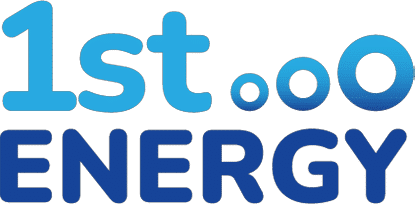


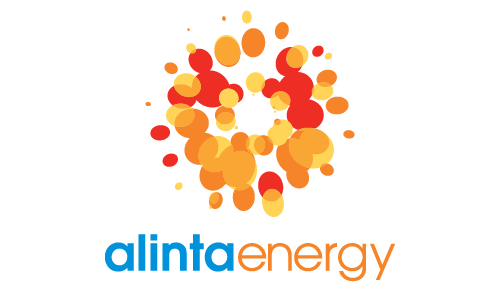



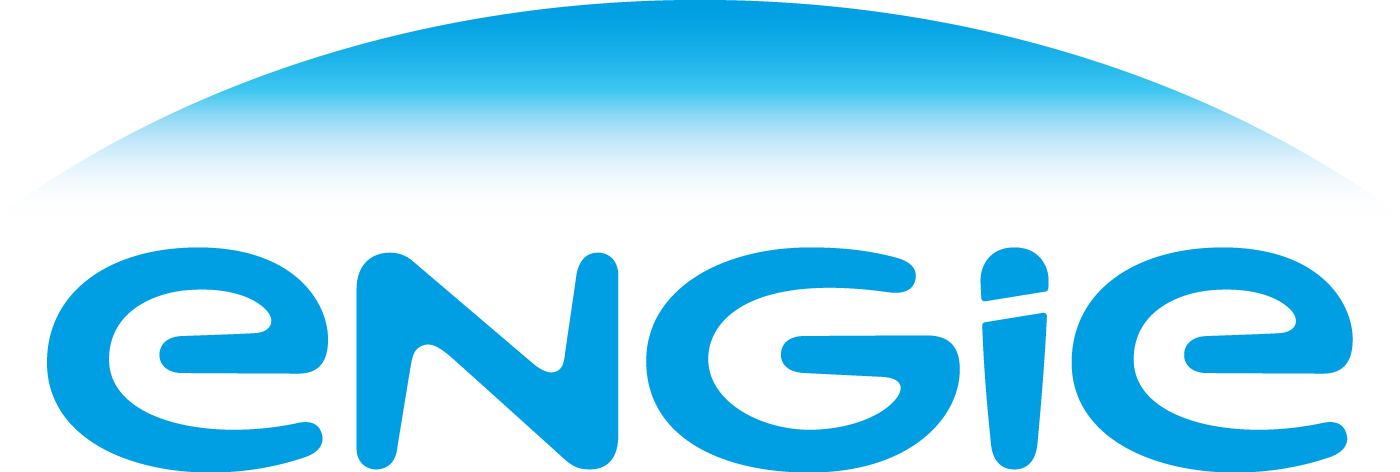






We’ve partnered with Econnex to bring you a range of energy plans to help you compare them.
How to find a cheap energy plan
Finding a cheap energy plan is hard to do without using a comparison service. Given energy plans bill you for a daily supply charge and a usage charge that differ depending on the energy grid your house belongs to, it isn’t straightforward. While you can easily multiply your supply charge by the number of days, calculating the usage charge can be more complicated. Unless you know the exact energy usage for every appliance in your house, it’s tricky to know where to start.
Comparison services simplify this by estimating your energy usage based on household size. They combine this with supply charges to provide an estimated quarterly or annual cost, allowing you to compare energy plans side by side and find the most affordable option.
When comparing energy plans through us, you can also see other important details, such as:
-
Tariff type: look at the type of tariff offered as this can impact your overall costs depending on your usage patterns.
-
Solar feed-in rates: these vary between providers, so if you have solar panels, it’s worth comparing how much you’ll be paid for any excess energy you send back to the grid.
-
Discounts and benefits: sign-up bonuses, pay-on-time discounts or bundled savings can help lower your costs.
-
Fees: keep an eye out for potential extra charges, such as exit fees, card payment fees or paper billing fees.
- Provider information: consider information about the energy provider itself, such as their renewable energy commitment, where they're based and customer satisfaction ratings. This can help you choose a provider that aligns with your values or offers better customer support.
By factoring in these additional details, you can make a well-informed decision and ensure you're getting the best deal for your needs.
Top tips for finding a cheap energy plan
-
Understand your bill
Break down your charges to see where you're using the most energy. Identify peak usage times or unneccessary fees can help you cut costs
-
Look for rebates or concessions
Government rebates and concessions can help reduce your bill if eligible.
-
Take advantage of discounts
It's always worth checking any sign up discounts a provider might offer that could reduce your bill in the long or short term.
-
Compare electricity and gas separately
While bundling feels more convenient, ensuring you compare the cheapest provider for each fuel type will ensure you're not paying extra for convenience.
-
Review your plan annually
Energy prices changed often, and better deals come up regularly. Comparing plans once a year helps you stay on the most competitive rate.
Types of energy plans
How to switch energy providers
It’s easy to switch providers in just a few simple steps. We've partnered with Econnex to give you access to a broad selection of providers in your region, ensuring you find the best plan for your needs. Here's what you need to do:
-
Fill out our quick online form
Get a quote for energy via Savvy. You will need to enter basic details including your address and what type of enery plan you're after.
-
Look through your tailored plans
Based on the information that you enter you'll see what plans are available at your address.
-
Compare plans and providers
You can compare all your options in one place. The plans displayed will include the estimated price, tarriffs, fees and any discounts or bonuses available with the plan.
-
Select your plan
Whether you choose a new energy provider or even a new plan with your existing one, they will do the hard work for you. Your new energy company will contact your existing one and organise the switchover.
What if I’m moving to a new property?
If you’re moving to a new property, a couple of extra steps will be involved. Before you move, you’ll need ensure a meter is installed at your new address and set up an energy account. Some providers charge a connection fee to activate electricity or gas at the property. You’ll also need to contact your current provider to close your existing account, which may involve a disconnection fee.
Energy rebates and concessions in Australia
There are different energy concessions and rebate programs available across Australia to eligible residents. These are typically available to concession card holders such as pensioners and are designed to help ease cost of living pressures, covering things like upgrades, installation and additional financial support. The type of support available and eligibility varies from state to state, so you should check your state or territory government website if you’re unsure about what rebates or concessions are available and whether you qualify.
Energy Bill Relief Fund
In the 2025–26 Budget, the Australian Government announced a six-month extension to its Energy Bill Relief Fund, which provided all Australian households with up to $300 to help reduce the cost of energy bills in 2024–25. With the extension, households and eligible small businesses will receive further energy bill rebates up to $150 from 1 July 2025 in two quarterly instalments.
- Retail pricing and the Default Market Offer - Australian Energy Regulator
- Victorian Default Offer - Essential Services Commission
- Best Solar Feed-in Tariffs by State and Territory - WATTever
- Energy bills simplified for consumers - Australian Energy Regulator
- Energy Bill Relief Fund - Department of Climate Change, Energy, the Environment and Water
- State of the energy market 2024 – Chapter 6 – Retail energy markets - Australian Energy Regulator





